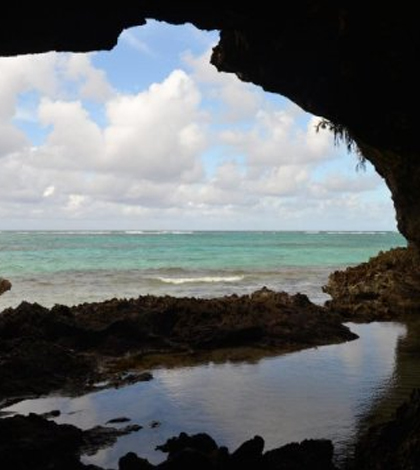Ancient Bahamas Extinctions Occurred Mostly Due To Human Arrival

Fossils in a flooded cave reveal the impact of human activities on biodiversity. (Courtesy of Science Daily)
Changes in climate wiped out 17 species of birds on the Great Abaco Island in the Bahamas 10,000 years ago, according to fossil evidence. But 22 species of birds, mammals and reptiles survived the climate change, only to be wiped out by the arrival of humans to the island 1,000 years ago, University of Florida scientists say.
Climate changes may have caused species isolation due to flooding and other habitat alterations, which in turn may have caused inbreeding, weakening and ultimately the destruction of species. But human arrival may have caused species loss in other ways, scientists say, such as through hunting and spreading wildfires.
The fossilized remains of almost 100 species were found in a flooded cave on Abaco Island, showing a trail of bird, mammal and reptile extinctions that went back for thousands of years. Researchers note that species able to survive the climate changes weren’t able to survive the arrival of humans.
Top image: Fossils in a flooded cave reveal the impact of human activities on biodiversity. (Courtesy of Science Daily)





0 comments